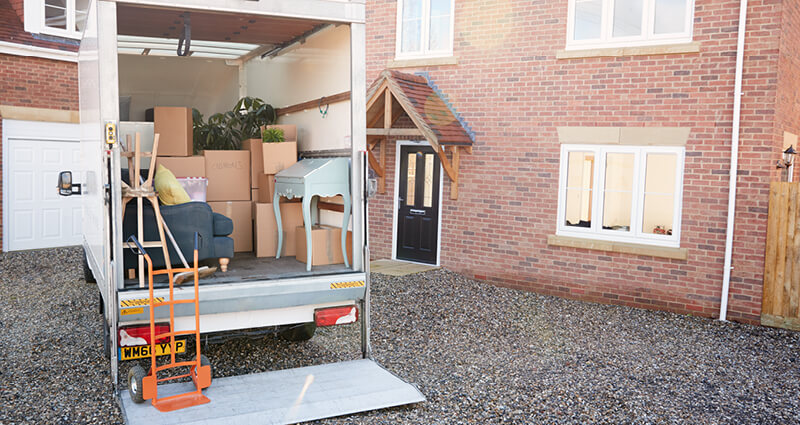Questions to ask before house hunting
Before you start shopping, there are some basic questions to answer:
How much can you afford to spend on your home?
Before shopping for your next home, know your credit score and how much you can afford to spend monthly on a mortgage. Get pre-approved by a mortgage lender to establish your spending limit when shopping for your new home. Doing your financial homework is the most crucial step in the househunting process.
The mortgage payment is just one expense — you also must consider your down payment, closing costs, property taxes, homeowners insurance, renovations, repairs, and other costs you've never faced as a renter. Make a detailed budget to determine how much you can spend on housing, then work with a real estate professional or financial planner to figure out a responsible price range for your house hunt.
What home features matter to you?
To be a genuinely effective house hunter, you must first list all the essential features you want in a home: a spacious yard, an open floor plan, three bedrooms, etc. You may have to make a few compromises, so put the "must-haves" at the top and the "would-like-to-haves" at the bottom.
Think about whether the house itself or the neighborhood matters more to you. For some people, living in a particular community takes precedence over everything else. For others, the house (comfortable, affordable, in good condition, etc.) is more significant than its location or the surrounding community.
Do you want to raise a family? Need a short commute to work? Would you prefer to stay close to the city? Have plans to start a home-based business? Use the answers to these questions to guide your house hunting among the homes in your price range. Once you find a home that fits your life (even if you compromise on specific aspects), you can remodel it into your dream house over time.
Boost your home research with networking
Once you decide on the type of home you'd like, start researching neighborhoods that match your criteria. The internet is an excellent place to start, allowing you to preview properties online before you try to arrange a visit. Many online listing sites like Realtor.com and Trulia.com have virtual tours, video content and other features to help you screen properties, get a quick sense of specific areas, and see local housing prices.
Use social media and friends
Turning to social media platforms like Twitter and Facebook is another good way to widen your circle and solicit the advice of your digital friends. You might be surprised that an old classmate went to college in the town you are moving to or learn that a former coworker has friends in the area you want to live in and can recommend an agent or provide information about specific neighborhoods.
Check resources at work
If you are moving because of your job, your new company may provide resources to assist you with relocation needs. Perhaps your new supervisor or a coworker may be able to offer some insight into the surrounding communities.
Find a real estate agent
Nevertheless, working with a real estate agent is one of the best ways to determine the options available to you in the area. The agent will be familiar with master-planned communities and other neighborhoods throughout the area, and they know about the prices and availability of the homes you are interested in. They can help you set up appointments (if you can visit the area before your move) and offer advice about neighborhoods, schools, public transportation, and other critical quality-of-life details.
You may have to condense your house hunting into a few days if you are moving from another state, so make sure to mention this to real estate agents before you select one. Ask them if they have experience helping long-distance clients, and find out if they can handle the compressed pace of your housing search.
Narrowing down your preferred location
Your future home should be strategically located within easy reach of key places in the city you'll visit regularly (work, school, healthcare centers, entertainment). Try to familiarize yourself with the road infrastructure in the area, traffic peculiarities, parking issues, and available public transportation to assess the accessibility of your new home. Research the social and demographic characteristics of your neighborhood of interest to ensure that the living standards complement your lifestyle, and research the surrounding area to ensure it's safe.
Among the neighborhood archetypes to consider:
- True value: Older, historic neighborhoods that retain their value, decade after decade.
- Town and country: Modern, master-planned neighborhoods outside the city, offering the best of both worlds with large, spacious homes surrounded by urban amenities and excellent local schools.
- Downtown dwellings: Vibrant communities conveniently close to the heart of the city, where city dwellers, business professionals, and fashionistas reside.
- Luxury living: Luxurious homes with starting prices ranging from upper six figures to millions of dollars; some of the most expensive and exclusive neighborhoods.
- Urban revival: Resurrected, diverse, eclectic neighborhoods with historic homes, beautiful bungalows, and trendy townhomes.
Features to look for when house hunting
As you start dropping in on open houses and poring over online listings, resist the urge to swoon over simple aesthetics like paint colors, light fixtures and decorative hardware. You can make those sorts of upgrades yourself, often cheaply. Instead, focus on the features that will help you save real money — and the shortcomings that could cost you.
Here are some of the essential criteria when sizing up your prospective first home:
- Lot size: You can always add a room to a house, but you generally can't add more space to the property. Consider whether the overall lot is large enough to allow your family to grow with the home.
- Age of the house: Consider both old and new homes. While it's always nice to move into a newly-built place, you may find some upgrades (such as a backyard deck or a swimming pool, for example) installed by previous owners of older homes to be very beneficial. Assess the home's renovation potential – decide if your desired renovations will be worth the time and expenses required for the project, how much value they will add to the home and if you can live without them.
- Windows: Old, single-pane windows don't bode well for energy efficiency. On the other hand, multi-pane windows can help make a home more comfortable while saving money on your energy bills. Window upgrades can pay for themselves in time, but the upfront cost is usually significant.
- The roof: Roof replacement is another expensive but inevitable aspect of home ownership. A roof in rough shape could cost you thousands of dollars or more in repairs shortly after signing the bill of sale.
- Signs of neglect: If you find your dream home at an affordable price, feel free not to sweat the small stuff. But if you notice lots and lots of little problems — broken light switches, sticky doorknobs, loose floorboards — they may be clues that the entire home has seen some long-term neglect. In homes like these, a home inspection is essential.
- The building envelope: In home design-speak, the "envelope" is the barrier between indoor and outdoor air. Breaches in the envelope are often called drafts, which can significantly drag on a home's energy efficiency. A small air leak here or there can be sealed easily, but upgrading the building envelope could be a huge and expensive job in older homes with many leaks.
- The HVAC system: No furnace or air conditioner is built to last forever. If the heating and cooling equipment is especially old or in noticeable disrepair when you buy your first home, you may soon be footing a hefty bill for their replacement.
- Major appliances: This usually shouldn't be a deal breaker, as appliances are easy (if pricey) to replace. But a home with new, energy-efficient appliances can help when adjusting to a new mortgage. They'll last a while, and they'll start saving you money right away.
- The number of bathrooms: Having too few bathrooms for the size of your family can make the morning rush impossible. But with all the plumbing work involved, adding a bathroom to an existing home can be very expensive.
- The kitchen: This is another room where major renovations mean major expenses. If you're a home cook who cares a lot about kitchen features, you may want to weigh them more heavily than other rooms that will be cheaper to upgrade.
The final steps to homeownership
Once you've narrowed down your choices, do your due diligence so you're not moving into a home with unpleasant surprises.
Ask for documentation
When you first find a contender for your dream home, be sure to ask lots of questions and even ask to see documentation to verify things like the age of the HVAC system and appliances.
Hire a home inspector
As you proceed, it's vital that you eventually enlist the services of a reliable home inspector. Plan to tag along during the inspection so the inspector can pinpoint potential problems in detail. Try not to fall in love with a house before the inspection, as you could uncover serious issues prohibitively expensive to remedy, forcing you to walk away.
Finally, try to enjoy the journey. Buying a house can be stressful, with so much money on the line, and it's not a process to take lightly. However, if you perform the proper diligence and zero in on a house that meets your needs and fits your budget, you can secure a home for your family for decades.



































